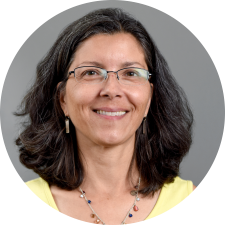The SEEK Project works hand-in-hand with congregations and non-profits to help transform social values into effective energy stewardship and climate action. We follow a partnership model that aims to enhance collective capacity, advance community well-being, encourage social innovation, and promote inclusion as core elements of achieving energy and climate goals. Grappling with energy and climate issues means understanding science, technology and markets, but it also requires a deep appreciation for the power of social values, cultural diversity, community cohesion, and social innovation. SEEK embraces all of these dimensions, welcoming partners from all sectors to work together to make a difference.
About the ProjectThe Sustainability Energy, Education and Knowledge-sharing (SEEK) Project catalyzes the values-driven leadership of cohesive social networks, such as congregations and non-profits, to accelerate societal energy transitions through education, technical assistance, and social innovation. An action research project of the Spirituality and Sustainability Initiative, SEEK relies on a novel model for leveraging existing assets and in-kind resources from multi-sectoral partners (including universities, congregations, commercial energy professionals, federal programs, and local leaders) to provide tailored mentoring and technical assistance in face-to-face and virtual formats that facilitate progressive knowledge development, knowledge sharing, and mutual problem-solving. |
Spirituality & Sustainability InitiativeSustainability challenges and innovations (in science, technology, culture, policy or business) are often nuanced, interconnected and carry the potential to disrupt worldviews and even generate cosmic concerns and questions about human experience and larger meanings. SSI embraces nuanced interconnections that may conventionally be viewed as in tension, such as facts and values, personal and collective, science and religion, ideals and action. SSI focuses on the wholeness of challenges, accepting the mix of rational and other factors that influence how people understand the world and make critical choices about how to act in it. |
Why Faith Communities?
Pressures to solve the climate crisis through clean, inclusive energy transitions are intensifying, but technological and market-based solutions alone cannot address the scope, complexity, and pace of needed actions. Changing energy systems is a fundamentally social endeavor, and achieving breakthroughs means leveraging social values, partnerships, and resources in new ways. One of the most significant potential leaders in the clean energy market is faith communities, including more than 200 spiritual traditions, 400,000 houses of worship, 250 million members (80% of the US population), and 4 billion square feet of built area. Faith communities are socially networked at local, state, national and global scales. They demonstrate deep social cohesion based on shared values of social service and stewardship, with high levels of motivation to take responsible action on community well-being. These actions can take many forms, including sustainable management of their own facilities. Many congregations have interests in “going solar” and participating in other solutions aligned with their values. While the energy marketplace offers opportunities for values-based action, faith communities face some challenges. Their energy projects tend to be smaller and require more technical assistance than average projects, and they may not be well-suited for conventional financing. This makes them more costly and less lucrative for private sector developers, leaving faith communities underserved. Despite strong stewardship values, only 770 (less than 1%) of all US worship facilities have installed solar and fewer than 6,000 (less than 5%) track their energy usage. The potential for increased impact is vast. What kind of impact? Well, if just half of US worship facilities took simple steps to increase their energy efficiency, they could prevent 5 million metric tons of climate emissions, save money on their utility bills, and improve the comfort and safety of their churches, schools, offices, and community centers.
That's just the beginning.
That's just the beginning.
Our Partners |
Advisors |
|


